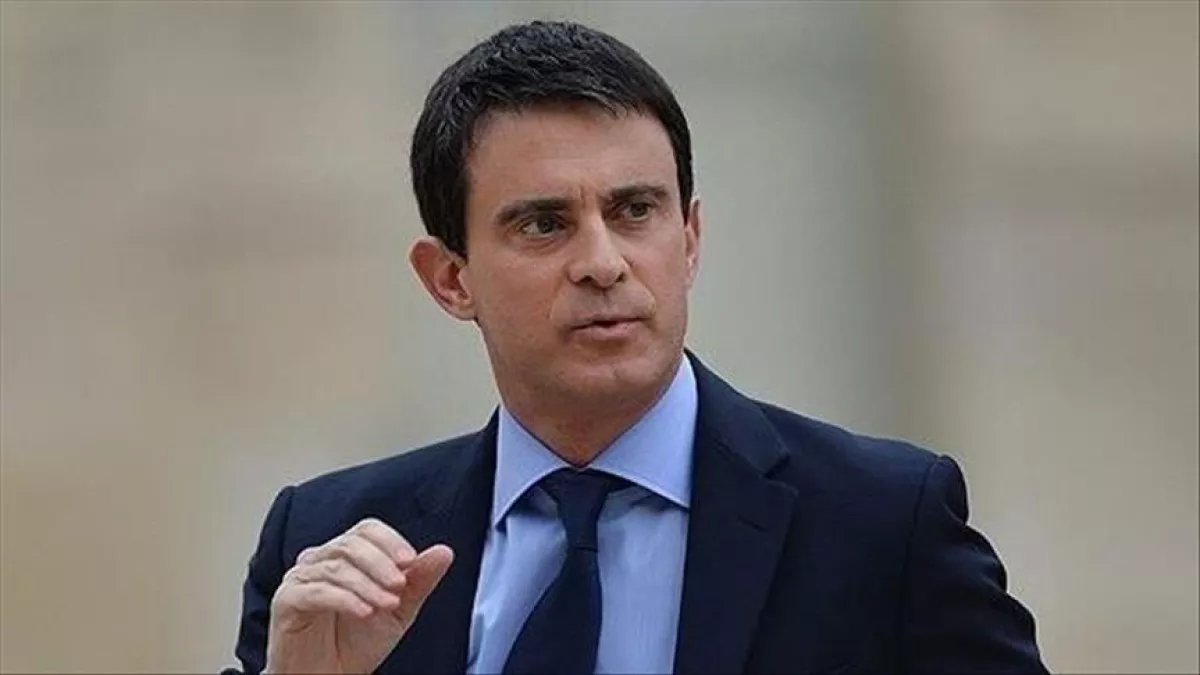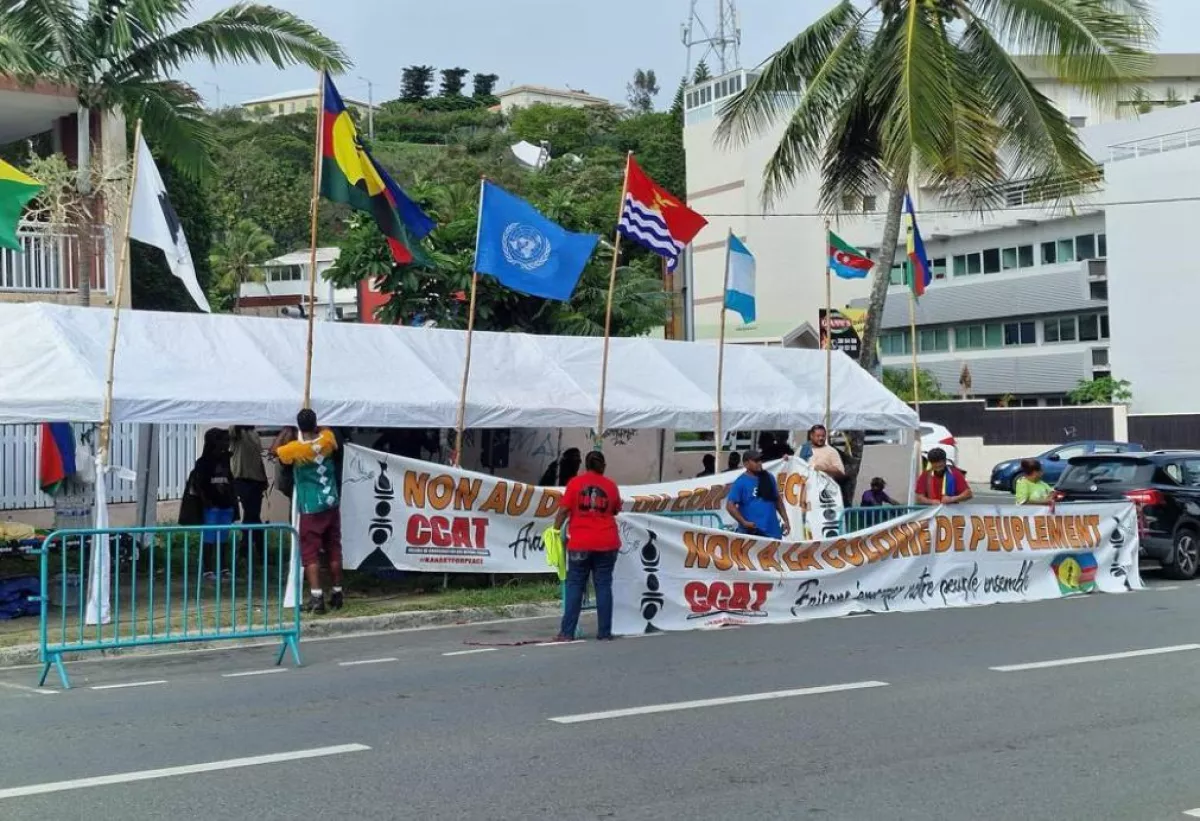New Caledonia – A hostage to France’s political turmoil Article by RNZ
The New Zealand public broadcaster RNZ has published an article focusing on the tensions surrounding New Caledonia after Naïma Moutchou was appointed France’s new Minister for Overseas on October 13, replacing Manuel Valls, who had been central to brokering the Bougival agreement. The deal, which proposes a “State of New Caledonia” within France, dual nationality, and the transfer of certain powers, faces rejection from the pro-independence FLNKS, which demands full sovereignty and insists local elections proceed on November 30, 2025. Valls’ departure has alarmed both pro-France and pro-independence leaders, as the agreement’s implementation—including cabinet endorsement and a Senate debate over election postponement—enters a critical phase. With Prime Minister Sébastien Lecornu now personally overseeing the case and a referendum scheduled by February 2026, New Caledonia faces a race against time to stabilise its political future amid growing opposition threats of motions of no confidence against the new Cabinet. Caliber.Az presents an excerpt from the piece.
"As part of a never-ending rollercoaster of instability in French politics, the latest appointment of a new Minister for Overseas has caused significant concern, including in New Caledonia.
French President Emmanuel Macron approved the latest Cabinet line-up submitted to him by his Prime Minister Sébastien Lecornu.
The new Minister for Overseas is now a newcomer to the portfolio.
Naïma Moutchou, 44, replaces Manuel Valls, who had worked indefatigably on New Caledonia since he was appointed in December 2024.

Since he took office, Valls, a former Socialist Prime Minister, had travelled half a dozen times to New Caledonia and managed to bring back all opposing local politicians (both pro-France and pro-independence) around the same table.
The ensuing negotiations led to the signing of a "Bougival" agreement (signed on 12 July, near Paris), initially signed by all local parties represented at New Caledonia's Congress (Parliament).
The text, which remains to be implemented, provides for the creation of a "State of New Caledonia" within France, as well as a dual French-New Caledonian nationality and the short-term transfer of such powers as foreign affairs from France to New Caledonia.
However, one of the main components of the pro-independence movement, the FLNKS (Kanak and Socialist National Liberation Front) has since rejected "in block" the Bougival deal, saying it was not compatible with the party's demands of full sovereignty and timetable.
Concern is expressed
In New Caledonia's political spheres, the new appointment on October 13 triggered several reactions, some critical.
Virginie Ruffenach, leader of the pro-France Rassemblement-Les Républicains (LR, which is affiliated to the National French LR), expressed disappointment at Vall's not being retained as Minister for Overseas.
She said the new appointment of someone to replace Valls, the main actor of the Bougival agreement, does nothing to stabilise the implementation of the deal.

The implementation is supposed to translate as early as this week with the need to get the French cabinet to endorse the deal and also this week, to put an "organic law" to the debate at the French Senate for a possible postponement of New Caledonia's local elections from no later than 30 November 2025 to mid-2026.
Referring to those short-term deadlines, FLNKS President Christian Téin, who is still judicially compelled to remain in metropolitan France pending an appeal ruling on his May 2024 riots-related case, sent an open letter to French MPs, urging them not to endorse the postponement of the local elections to mid-June 2026.
Téin said the postponement, although already endorsed in principle by local New Caledonian Congress, would be a "major political regression" and would "unilaterally put an end to the decolonisation process initiated by the (1998) Nouméa Accord".
The pro-independence leader insists New Caledonia's crucial local elections should be held not later than 30 November 2025, as originally planned.
He said any other move would amount to a "passage en force".
An earlier attempt, during the first quarter of 2024, was also described at the time as a "passage en force" (forceful passage).
It aimed at changing the French Constitution to lift earlier restrictions to the list of eligible voters at local elections.
Following marches and protests, the movement later degenerated and resulted in the worst riots that New Caledonia has seen in recent history, starting from May 13, 2024.
The riots caused 14 deaths, over €2 billion in material damages, a drop of 13.5 percent of the French Pacific territory's GDP and thousands of unemployed.
New Caledonia back to the PM's desk?
Under a long-unspoken rule installed by French Prime Minister Michel Rocard (after he fostered the 1988 historic Matignon Accord to bring an end to half a decade of quasi-civil war), New Caledonia's affairs had been kept under the direct responsibility of the French PM's office.
This lasted for over thirty years, until the special link was severed in 2020, when Lecornu became Minister for Overseas, a position he held for the next two years and became very familiar and knowledgeable on New Caledonia's intricate issues.
"Lecornu is now Prime Minister. Does this mean New Caledonia's case will return to its traditional home, the PM's office?", he wondered.

During an interview on French public service TV France 2 on October 8, last week, Lecornu went as far as describing New Caledonia as an issue "personal" to him.
"Some 18,000 kilometres from here, we have an institutional situation that cannot wait", he said at the time.
Race against time
As part of the Bougival text's implementation and legal process, a referendum is also scheduled to be put to New Caledonia's population no later than end of February 2026.
Lecornu is scheduled to deliver his maiden speech on general policy before parliament on Wednesday, October 15 - if he is still in place by then.
On October 13, two main components of the opposition, Rassemblement National (right) and La France Insoumise (left) have already indicated their intention to each file a motion of no confidence against Lecornu and his newborn Cabinet.
The Socialist Party has not yet indicated whether it would also file a motion of no confidence, but that this would depend on Lecornu's position and expected concessions on the very controversial pension scheme reforms and budget cuts issue,” article reads.








